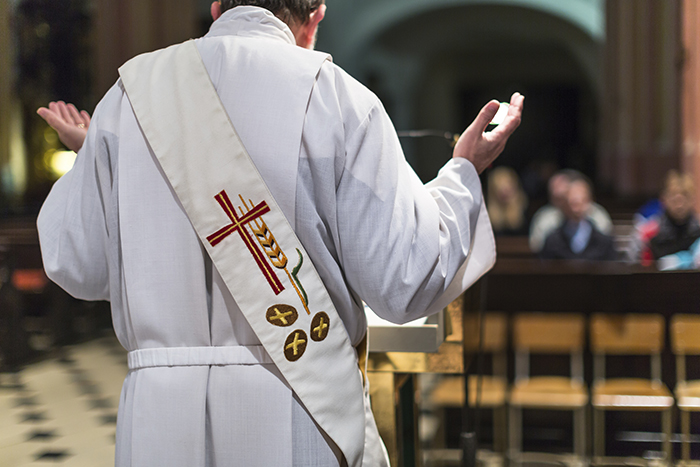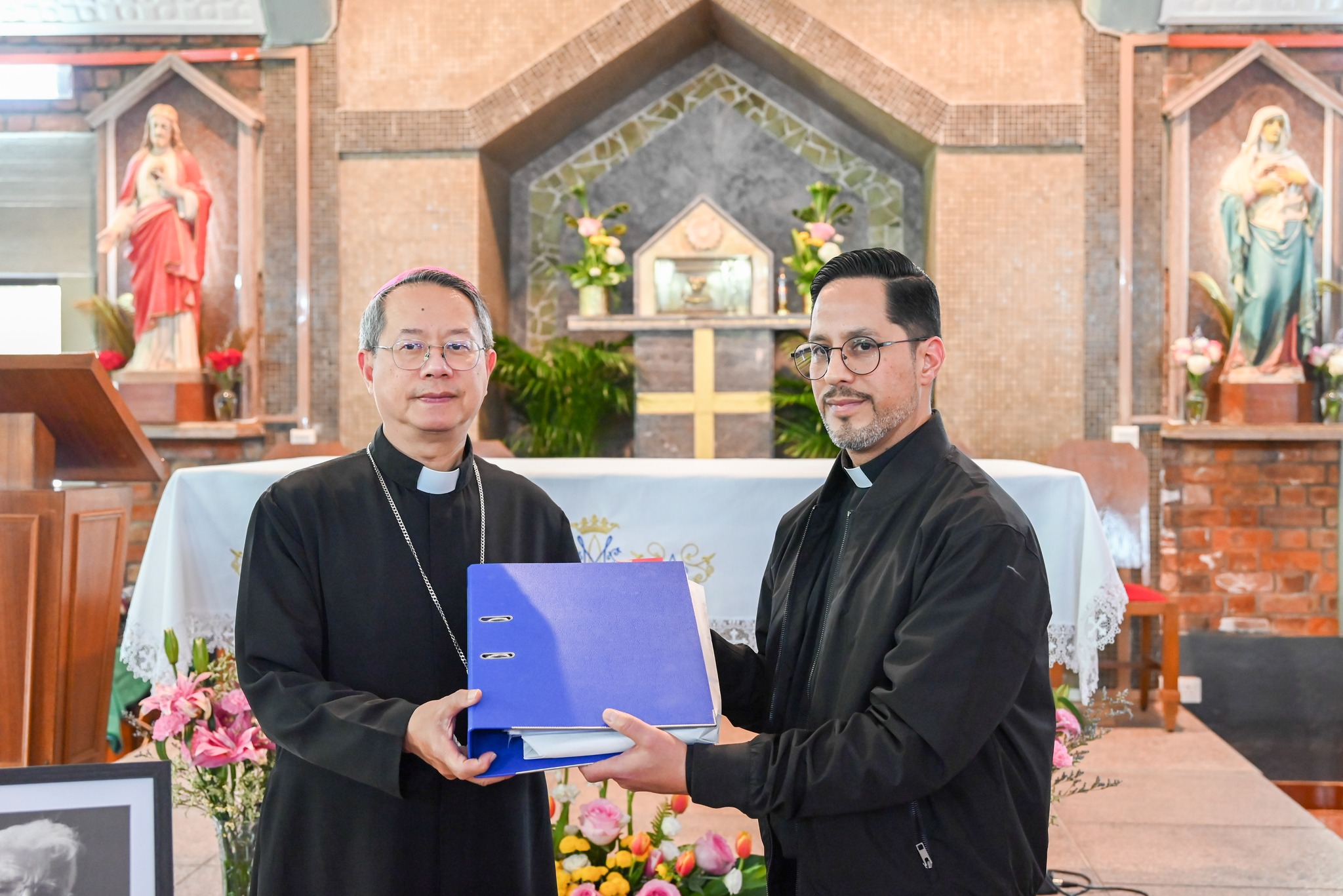The English word deacon (Old-Eng. diacon) refers to the first degree of the Church’s Holy Orders, it derives from the Ancient Greek term διάκονος diā́konos through Latin diaconus. Its original meaning is ‘servant’ and it was often used in the context of someone serving as an assistant in a temple, or as an aide to high officials, such as kings.
In the Bible, there are several different words for servant, amongst them διάκονος and δοῦλος doúlos. These two words describe different types of service: whereas doúlos, often translated as slave, describes a servant’s status in relation to his master, diā́konos describes someone in relation to his duties. In in the Wedding at Cana (Jo 2:1-11), the assistants of the head-butler who were responsible for serving the wine are referred to in the Geek text as diā́konoi; this is so because,although they are just servants, they were put in charge of a specific duty, whereas the doúloi are in there for any kind of work which needs doing.
In the Septuagint, an old Greek translation of the Hebrew Old Testament, διάκονος translates Hebrew נַעַר na‘ar whereas δοῦλος nearly always translates עֶבֶד ‘eḇeḏ.
In Isaiah (Isa 42:1-9; 49:1-13; 50:4-11; 52:13-53:12.) the Servant of the Lord who prefigures Jesus (Mt 8:17; Lk 22:37), is referred to by the word עֶבֶד ‘eḇeḏ. In the OT, people, such as Moses (Ex 14:31), Joshua (Josh 5:14), David (1Sam 23:9) or Salomon (1Kings 3:7) are also described as servants of the Lord with the same word עֶבֶד ‘eḇeḏ, and in the NT, St Paul (Acts 27:2; Romans 1:1; Ephesians 3:1), St James (Jas 1:1), St Peter (2Pet 1:1), St Jude (Jude 1), St John (Rev 1:1) and even the Virgin Mary (Lk 1:38, 48) are also referred to as servants of God with the word doúlos. Jesus, in turn, when described as a servant of God the word used in Greek is παῖς país (Acts 3:13, 26; 4:27, 30), a word which can mean both young boy and house servant making it closer to Hebrew נַעַר na‘ar than to עֶבֶד ‘eḇeḏ. In the Septuagint, the term עֶבֶד ‘eḇeḏ referring to the Servant of the Lord in Isaiah is also translated as παῖς. In fact, Jesus is never described as δοῦλος, except in the letter to the Philippians (2:7-8) when St Paul remarks that despite Jesus’s own likeness with God, he emptied himself and was born in the likeness of men by taking the form of a servant (King James Version) or a slave (New Jerusalem Bible). In this case the word doúlos is used not to describe Jesus but to emphasize how extraordinary the Incarnation is−one who is like God and yet chooses to be born bearing the same nature as those who can be slaves.
Derived from the root of δοῦλος, we have the verb δουλέω douléō meaning ‘to serve (as a slave)’ and from the root of διάκονος we have the verb διακονέω diākonéō meaning also ‘to serve’.
When it comes to describe Jesus as one not to be served, but to serve (Mt 20:29-34, Mk 10:42-45) the verbal forms used are not from δουλέω, but from διακονέω and in the same passage, those who want to be great are required to become a δίακονος of their fellowmen and those who want to be the first must first become δοῦλος of the others.
In the NT, the term διάκονος also describes the office of deacon at its beginnings. The laying of hands over the seven men chosen to serve as diā́konoi in Acts 6:1-7 shows that these are no ordinary servants, like those serving the wine, but the first ordained deacons of the Church. St Paul follows this up in his first letter to Timothy (3:1-13) where he describes the requisites of the candidates for the offices of epískopos and diā́konos showing them to be distinct from each other. So, in the NT we can find coexisting side by side the word diā́konos meaning servant and diā́konos meaning deacon. As in the case of bishop, the word deacon too derives from a term whose meaning is clear and that should help us to understand the original meaning of the Church’s office which takes this Ancient Greek word for its name. From the philological analysis of the word deacon within its NT context, we can conclude that the duty of the deacon was to serve, as the duty of the bishop was to supervise.


 Follow
Follow


